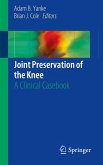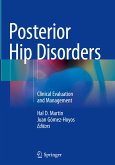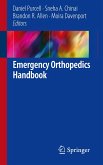This book provides a concise and up-to-date resource on common shoulder disorders. The reader will learn about various shoulder conditions, their presentation, evaluation and management. Anatomy, biomechanics, function, clinical history taking and examination, radiological imaging and other investigations, as well as principles of non-surgical and surgical management of the troublesome shoulder are presented first. The Shoulder Made Easy conveys clear, easily understood information to help practitioners in day-to-day clinical practice as well as in preparation for undergraduate or postgraduate exams. The book focuses on:
Commonly encountered clinical symptoms of the shoulder: patients don't present with a clinical diagnosis but with symptoms such as pain, stiffness, weakness or instability and a thorough consideration of what could be accounting for such symptoms and how such symptoms may be dealt with is presented.
Commonly encountered clinical disorders of theshoulder: each clinical disorder is concisely presented with the background, clinical symptoms, investigations, differential diagnosis, treatment and a further reading section.
This book attempts to present information in an easily read, succinct way. In particular, this book tries to unpick and explain those concepts of shoulder disorders that may be difficult to understand. An attempt is made to pass on knowledge but more importantly also stimulate lateral thinking. Key diagrams, clinical photographs and radiographs are used as necessary to highlight important points; references to relevant landmark articles are also provided in each chapter.
The book will be of great interest to medical students, junior orthopaedic doctors, GP's and physiotherapists.
Commonly encountered clinical symptoms of the shoulder: patients don't present with a clinical diagnosis but with symptoms such as pain, stiffness, weakness or instability and a thorough consideration of what could be accounting for such symptoms and how such symptoms may be dealt with is presented.
Commonly encountered clinical disorders of theshoulder: each clinical disorder is concisely presented with the background, clinical symptoms, investigations, differential diagnosis, treatment and a further reading section.
This book attempts to present information in an easily read, succinct way. In particular, this book tries to unpick and explain those concepts of shoulder disorders that may be difficult to understand. An attempt is made to pass on knowledge but more importantly also stimulate lateral thinking. Key diagrams, clinical photographs and radiographs are used as necessary to highlight important points; references to relevant landmark articles are also provided in each chapter.
The book will be of great interest to medical students, junior orthopaedic doctors, GP's and physiotherapists.








